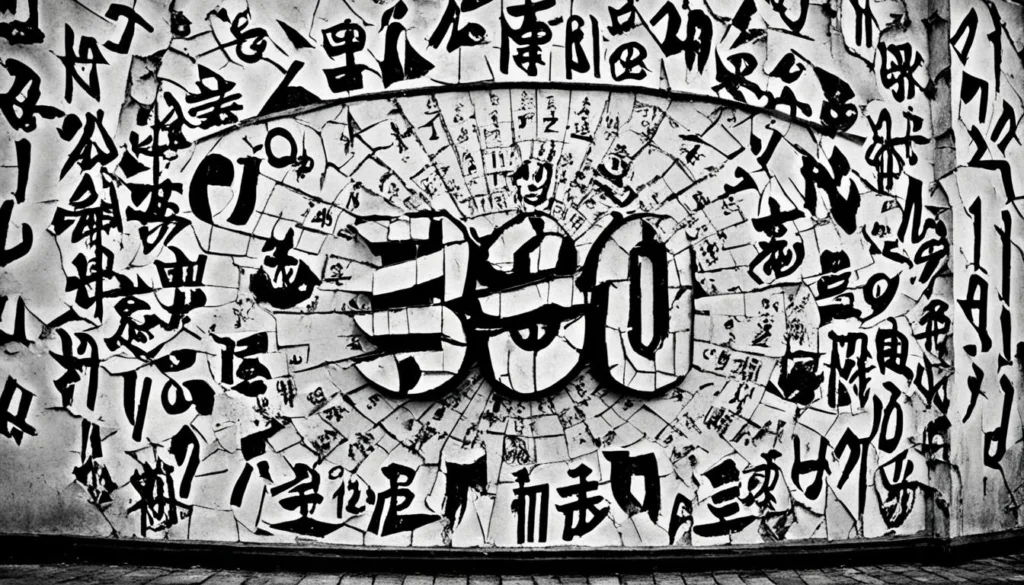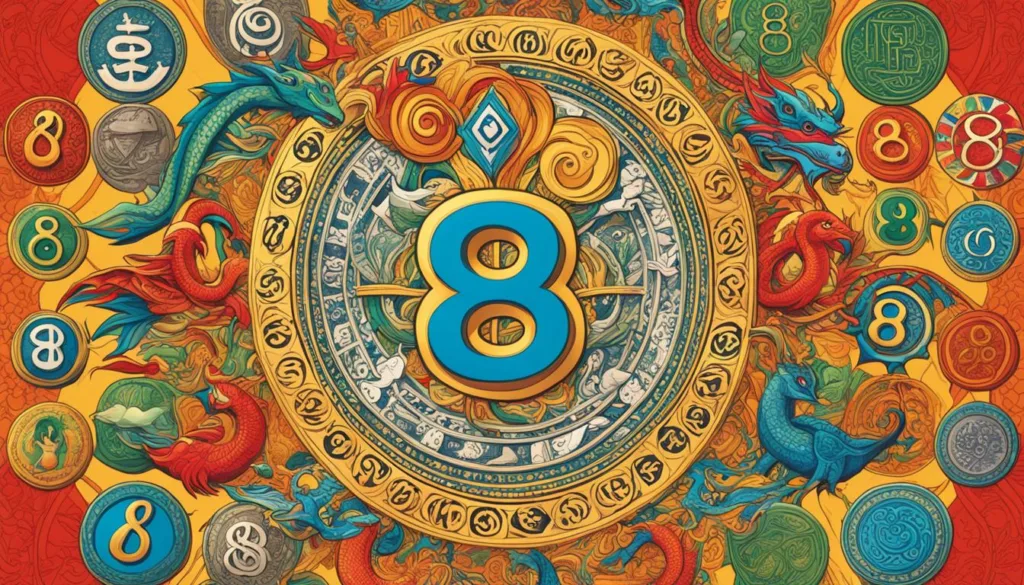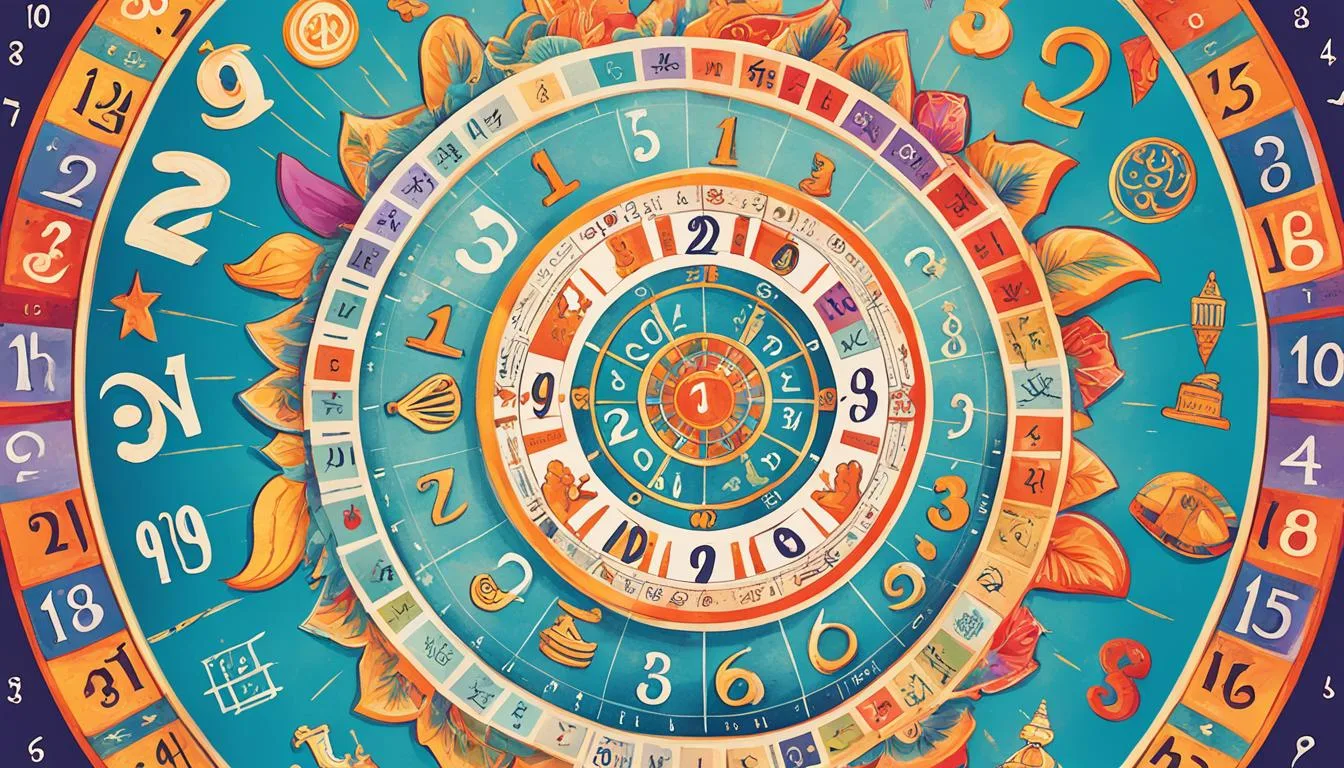Have you ever wondered why some numbers are considered lucky in one culture but unlucky in another? Or why certain numbers hold immense spiritual significance across different civilizations? Exploring the fascinating world of angel numbers reveals the profound influence of culture on the meaning of numbers.
From ancient times to the modern digital age, the concept of angel numbers has evolved, intertwining with diverse cultural beliefs and traditions. So, what do angel numbers truly represent in different cultures? How can understanding the global perspective on angel numbers enhance our spiritual awareness and global business strategies? Let’s delve into the intriguing world of angel numbers and discover the rich tapestry of meanings they hold in different cultures.
Whether you’re fascinated by numerology, interested in spiritual symbolism, or simply curious about diverse cultural beliefs, this article will provide valuable insights into the global significance of angel numbers. Join us as we uncover the rich tapestry of angel numbers across cultures and gain a deeper understanding of their impact on our lives.
The Meaning of Numbers in Different Cultures
Numbers hold significant meaning in various cultures around the world. Different civilizations and belief systems have developed their own unique numeric representations and systems, each with its own cultural implications.
For example, the Egyptians and Greeks greatly contributed to the development of numerals, paving the way for the numeric systems we use today. Furthermore, the Hindu-Arabic numeral system, which originated in India, has become the most prevalent and widely used numeric system worldwide.
Understanding the cultural meanings behind numbers is crucial for effective communication and marketing strategies. By recognizing and respecting the symbolic importance of certain numbers in different cultures, businesses can tailor their messaging to resonate with specific audiences.
For instance, the number 8 is considered highly auspicious and associated with wealth in Chinese culture. Utilizing this number in marketing campaigns targeting Chinese consumers can convey positive symbolism and attract their attention.
Similarly, the number 7 is considered lucky in Japan, China, and many Western countries. Incorporating this number into product launches or promotional offers can help businesses tap into the cultural belief in luck and increase customer engagement.
By understanding the meanings of numbers in different cultures, businesses can foster positive associations, build rapport, and create meaningful connections with their target audience. It allows for culturally sensitive and inclusive marketing strategies that resonate with diverse groups of people.
Ill-fated Numbers in Different Cultures
Numbers hold cultural significance and can carry negative connotations in different parts of the world. Understanding these ill-fated numbers is crucial for effective communication and marketing strategies.
In many East Asian cultures such as China, Japan, and South Korea, the number 4 is considered unlucky due to its association with the word “death.” The fear of this ill-fated number is so strong that it is often skipped in numbering systems, such as in building floors or room numbers.
In Japan, the number 9 is also seen as unlucky, as it sounds similar to the word for “pain” or “agony.” However, in China and Norway, the number 9 is considered lucky and associated with longevity and the Chinese emperors.
The number 13 is widely regarded as unlucky in many countries due to its association with bad luck or superstition. In some Western cultures, including the United States, it is commonly viewed as an ill-fated number associated with misfortune.
Another example is the number 17, which is believed to be unlucky in Italy. This is because, when written in Roman numerals (XVII), it can be rearranged to form the Latin word “VIXI,” meaning “I have lived” and associated with death.
By being aware of these ill-fated numbers across different cultures, businesses can avoid cultural missteps and create more effective marketing campaigns.

Favorable Numbers in Different Cultures
Just as there are ill-fated numbers, different cultures also consider certain numbers to be lucky or auspicious. Understanding these favorable numbers is essential when it comes to creating marketing strategies that resonate with diverse audiences. Let’s explore some of these favorable numbers in different cultures:
Number 3: Luck in Sweden and Korea
The number 3 holds significant positive symbolism in Swedish and Korean cultures. It is commonly associated with good luck, harmony, and creativity. In Sweden, the number 3 represents the Holy Trinity and is believed to bring blessings and abundance. In Korean culture, the number 3 is considered lucky and is associated with successful endeavors and a fulfilling life.
Number 7: Luck in Japan, China, and Western Countries
The number 7 is widely regarded as lucky across various cultures. In Japan, it is believed to bring good fortune and success, often associated with longevity. In China, the number 7 is considered lucky and represents togetherness and harmony. Many Western countries also view the number 7 with positive connotations, often associated with spirituality, intuition, and good luck.
Number 8: Wealth in Chinese Culture
The number 8 holds immense significance in Chinese culture, particularly when it comes to generating wealth and prosperity. This number is considered extremely lucky, as its pronunciation is similar to the Chinese word for wealth and abundance. It is often associated with financial success and is favored in business and personal ventures among the Chinese community.

Understanding and incorporating these favorable numbers into marketing strategies can help businesses tap into positive symbolism and resonate with diverse cultures. By acknowledging and embracing the cultural significance of these numbers, companies can establish stronger connections with their global audience and create marketing campaigns that elicit a sense of luck, abundance, and happiness.
The Evolution of Angel Numbers
The concept of angel numbers, the belief that specific number sequences carry divine messages, has a long and fascinating history that dates back to ancient civilizations. This practice of associating numbers with spiritual meanings can be traced all the way back to Pythagoras and the Ancient Greeks, who believed that numbers held mystical significance.
Throughout history, various authors and spiritual leaders have played a pivotal role in shaping our understanding and interpretation of angel numbers. L. Dow Balliett, a renowned American author, was one of the early pioneers in popularizing the concept of angel numbers in the late 19th century. Inspired by her work, other notable figures like Doreen Virtue, an internationally recognized spiritual teacher, have further expanded on the topic.
As we move into the digital age, the concept of angel numbers continues to evolve. Online resources, such as websites and mobile apps, provide real-time guidance and interpretations of these mystical number sequences. This accessibility has allowed individuals from all walks of life to explore the meaning behind the numbers that appear in their daily lives, seeking divine messages and guidance along their spiritual journeys.
By embracing the evolution of angel numbers, we can tap into the wisdom and insight they offer, providing a deeper understanding of ourselves and our place within the universe.
Conclusion
Angel numbers have fascinated people from diverse cultures and belief systems for centuries. These numbers hold deep symbolism and spiritual significance, offering individuals guidance and insight into their lives. It is crucial for effective communication and marketing, especially in a global context, to understand the cultural meanings and interpretations of these numbers.
The concept of angel numbers continues to evolve, with modern interpretations and authors contributing to our understanding of these divine messages. From Pythagoras in ancient Greece to contemporary writers like L. Dow Balliett and Doreen Virtue, the exploration of angel numbers has expanded our spiritual horizons.
Recognizing and interpreting angel numbers opens the doors to spiritual guidance and personal growth. By paying attention to the number sequences that appear in our lives, we can tap into the messages that the universe sends us. Whether it’s through online resources, smartphone apps, or insightful interpretations, angel numbers provide a pathway to a deeper understanding of ourselves and the world.




